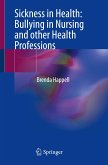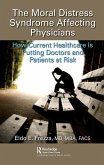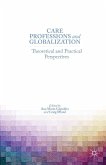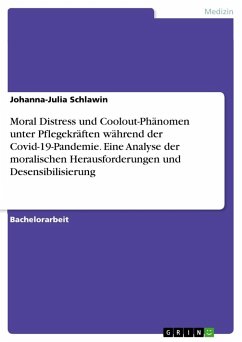This is the first book on the market or within academia dedicated solely to moral distress among health professionals. It aims to bring conceptual clarity about moral distress and distinguish it from related concepts. Explicit attention is given to the voices and experiences of health care professionals from multiple disciplines and many parts of the world. Contributors explain the evolution of the concept of moral distress, sources of moral distress including those that arise at the unit/team and organization/system level, and possible solutions to address moral distress at every level. A liberal use of case studies will make the phenomenon palpable to readers.
This volume provides information not only for academia and educational initiatives, but also for practitioners and the research community, and will serve as a professional resource for courses in health professional schools, bioethics, and business, as well as in the hospital wards, intensive care units, long-term care facilities, hospice, and ambulatory practice sites in which moral distress originates.
This volume provides information not only for academia and educational initiatives, but also for practitioners and the research community, and will serve as a professional resource for courses in health professional schools, bioethics, and business, as well as in the hospital wards, intensive care units, long-term care facilities, hospice, and ambulatory practice sites in which moral distress originates.
"This book presents, through the collaboration of a large group of academics and specialists in the medical sector, a great addition to the theoretical field ... . The book presents, also, practical perspectives from workers in the field and the benefits from their experiences in setting out a comprehensive goal which is to improve both the quality of the workers' medical work and to provide them with psychological comfort." (Mohammad J. Thalgi, Ethical Theory and Moral Practice, Vol. 23, 2020)
"This collection fills a much-needed gap in the moral distress literature. It brings academic and bedside perspectives together in ways that are mutually informative, it highlights current points of consensus and disagreement on the concept of moral distress, and it identifies some possible ways forward, both for future research on moral distress and for strategies to address it." (Jamie Carlin Watson, metapsychology online reviews, Vol. 24 (24), 2020)
"This unique book discusses moral distress among nurses and other healthcare professionals. Case studies are used to describe situations in which healthcare providers experience moral distress. ... This is a unique book on the concept of moral distress in nursing and other healthcare professions. It would be a good resource for the classroom setting or for healthcare professionals to add to their libraries." (Michalene A. King, Doody's Book Reviews, April, 2018)
"This collection fills a much-needed gap in the moral distress literature. It brings academic and bedside perspectives together in ways that are mutually informative, it highlights current points of consensus and disagreement on the concept of moral distress, and it identifies some possible ways forward, both for future research on moral distress and for strategies to address it." (Jamie Carlin Watson, metapsychology online reviews, Vol. 24 (24), 2020)
"This unique book discusses moral distress among nurses and other healthcare professionals. Case studies are used to describe situations in which healthcare providers experience moral distress. ... This is a unique book on the concept of moral distress in nursing and other healthcare professions. It would be a good resource for the classroom setting or for healthcare professionals to add to their libraries." (Michalene A. King, Doody's Book Reviews, April, 2018)








